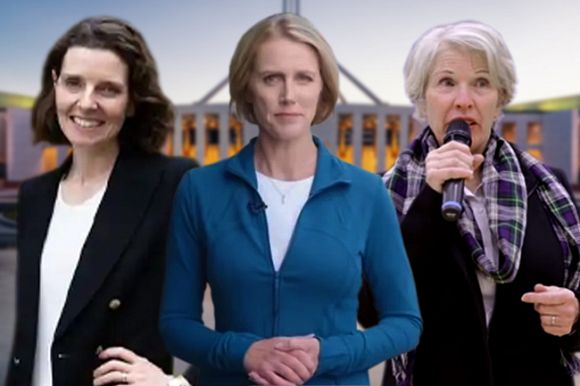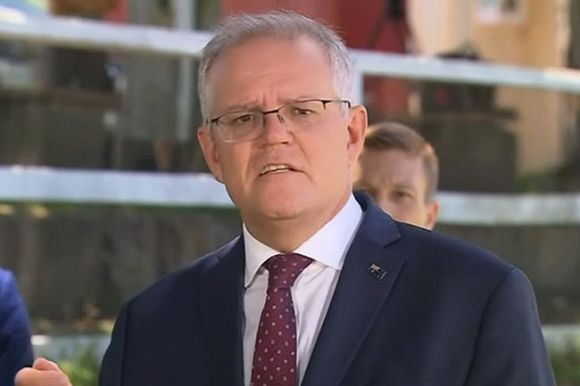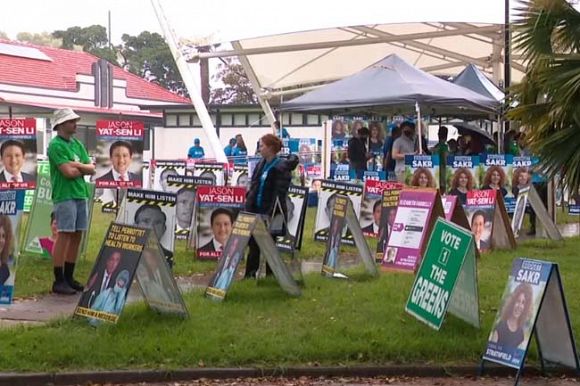The Independent movement has risen on the determination to restore the integrity that our two-party system fails to uphold, writes Professor Kerryn Phelps.
ONE OF THE intriguing oversights of the early part of the 2022 Federal Election campaign has been the apparent blind spot that the Canberra Press Gallery had for the rise of the community based independent movement.
Now they seem to be catching on to the prospect of a significant number of “teal” Independents being elected and having a real and positive influence over the next parliament.
We are witnessing an evolution in the Australian political landscape. Just imagine the potential!
The Westminster system of “government vs opposition” where two major parties ride the see-saw of public opinion with a handing back and forth of the keys to the treasury created a mindset for voters. That mindset is that for the House of Representatives, their only choice is a binary decision between one of the two major parties.
The 2019 Federal Election continued the trend of decreasing first preference votes for both of the major parties, with both parties returning the lowest primary vote for some years.
The rise of the Independent political movement in Australia is a perfectly timed response to the ailing form of government we call the “two-party system”.
Independents in the House of Representatives are not a new phenomenon. Think Ted Mack, Rob Oakeshott, Tony Windsor, Andrew Wilkie. All highly effective Independents in their own right.
The Independent movement, as a community-based phenomenon, had its first stirrings in the electorate of Indi in 2013 when Cathy McGowan unexpectedly won the seat from the incumbent Liberal member Sophie Mirabella.
Cathy began her campaign with a process of “kitchen table conversations” and built a campaign structure with spirited support from volunteers, most of whom had never been involved in a political campaign. This has become a familiar theme in the Independent campaigns around Australia.
The Independent movement was elevated into national prominence when Malcolm Turnbull was deposed as Prime Minister and then resigned, triggering a by-election in Wentworth in 2018. When I won that by-election against all odds with an unprecedented almost 20 per cent swing, it changed the Australian political landscape fundamentally.
No seat could ever again be considered a safe seat for either of the major parties. If communities decided that they wanted to put their support behind a member of their community in defiance of the party preselection processes, or indeed an entirely undemocratic “captain’s pick”, then any seat with the right candidate with the right policies could be won by an Independent.
When Julia Banks dramatically left the Liberal Party in November 2018 and moved to complete her term as an Independent, the crossbench held the balance of power.
With careful negotiation between Labor and the Greens and the crossbench Independents, we were able to gain support for what became known as the “Medevac legislation” to ensure a more humane process for treating refugees in indefinite offshore detention when they had a medical crisis, without impacting on border security concerns.
This period of time in our political history showed that a strong crossbench of sensible Independents could transform the way politics and indeed legislation was conducted in Australia.
There are enormous challenges facing Australia now and into the future. With the coalition parties in power for almost a decade, voters will have to look to this Government’s record as they make decisions about the way forward.
The Morrison Government will be hoping that voters have short memories and shorter attention spans, and that they will ignore the scandals, the sports rorts, the lies, the broken promises and the alleged mismanagement of taxpayer funds.
We have yet to see how a trillion dollars in debt is going to be repaid.
The Morrison Government has steadfastly refused to honour its promise to introduce an integrity commission within this term of parliament and has disappointingly ruled out anything other than the weak model they have proposed.
Zali Steggall, Allegra Spender, Zoe Daniel, Dr Sophie Scamps, Kylea Tink, Dr Monique Ryan and the other community Independents have all emphasised the importance of integrity and accountability.
For trust to be restored in Australian politics, it will take a fundamental shift in the approach to the allocation of grant funding and a formal process of accountability in the form of a strong federal integrity commission along the lines of the proposal by Independent MP for Indi, Helen Haines.
Australian political intransigence on climate action became an international embarrassment at COP26 in Glasgow last year. There is no evident appetite for a move away from fossil fuels by the Liberal-National Coalition any time soon. Indeed, the Labor Party has no apparent impetus to wean off fossil fuel donors, either.
The climate-aware and future-focused Independent candidates have spoken about the enormous economic potential of renewable energy investment as well as more ambitious and achievable emissions reduction targets.
The Morrison Government broke its promise to protect LGBTQI students in schools, even installing an anti-transgender activist as the “captain’s pick” for the Liberals in Warringah.
We have seen the pathetic “don’t hold a hose” performance during the 2019-2020 bushfires, the despair and frustration of people left homeless after the bushfires who still have not received the relief payments they were promised two years ago.
The lack of any apparent concern for emergency action during the floods in northern New South Wales and southern Queensland in 2021 and 2022 is a recent trauma. The incandescent anger of people left to fend for themselves as entire townships were destroyed and lives were at risk will not be easily forgotten.
It seems that the Morrison Government has had to be pushed and cajoled to perform the most basic functions of government.
It would actually be a refreshing change after these last three years to have a government that actually wants to, you know, govern, in the interest of the people of Australia.
We need attention to healthcare, aged care, child care and education.
The management of the COVID-19 pandemic has been monumentally frustrating from a public health perspective. The states were forced to take matters into their own hands in the absence of leadership from the Federal Government. The vaccine rollout was monumentally botched. General practice was asked to step up, which we did. However, communication from the Government to general practice and support for frontline healthcare workers was a shambles.
We now have a situation where the Government has just given up any attempt to stop transmission of the virus, with no apparent plan for the potential long-term implications of conditions like long COVID, the emergence of new variants or a game plan for when immunity from currently available vaccines inevitably wanes. That should be a front-of-mind challenge for any future government.
In the 2019 Election campaign, we were served up a menu of so-called “Modern Liberals”, indistinguishable from the usual Liberals. It was a transparent marketing ploy.
This time around, the community Independents are greater in number, better organised, have learnt from the experience of others and are better resourced. They have the passion and the drive lacking in candidates who feel entitled to election because they carry a party brand in a previously “safe” seat.
The Independents are called the “real teal” for a reason. It has been amusing to see some former “Modern Liberals” drop the Liberal branding from their communications with constituents and sneakily incorporate teal into their branding. The communities are unlikely to be fooled by these cynical ploys this time around.
It is no coincidence then that the prominent Independent candidates are almost all women, accomplished in their various professional fields and feeling, as I did, a weight of responsibility to roll up their sleeves and get into parliament to “fix things”.
Women have long felt disenfranchised by the current political system. The March4Justice in 2021 galvanised the anger and frustration of a generation of women about the lack of equality, justice and respect for women. They demanded greater representation in Australian politics, particularly from the Liberal and National Parties.
The Independent movement is the result of a realisation that there is more than one way to fix a broken system.
One of the prospects put to the Australian people is that the election of Independents may result in a minority government, without a hint of irony that Liberal coalition governments in recent memory have all been minority governments dependent on the less-than-representative members of the right-wing National Party.
Community-supported, sensible Independents bringing a wealth of real-life experience to parliament can only enhance the democratic process.
The emergence of the Independent movement is an opportunity for a reset of the Australian political landscape. It signals an unprecedented surge of engagement of people in the political process.
As community movements have been developing and emerging across Australia over the past few years, they have generated a new excitement in politics, a sense of engagement and optimism for the future rather than a flaccid acceptance of “politics as usual”.
Professor Kerryn Phelps AM is an IA columnist, the former Member for Wentworth, advisory board member and conjoint professor at NICM Health Research Institute, a Climate 200 advisory panel member, a member of OzSAGE and a former Sydney Deputy Lord Mayor. You can follow her on Twitter @drkerrynphelps.
Related Articles
- Climate and energy: A big fat Coalition fail
- #AusVotes2019IA: Federal Election LIVE BLOG
- Experts' opinions vs the People's voice
- Brown coal's bleak future as Victorian Labor joins other Labor states to ramp up #renewables
- The Turnbull Government appears criminally liable for Manus and Nauru
 This work is licensed under a Creative Commons Attribution-NonCommercial-NoDerivs 3.0 Australia License
This work is licensed under a Creative Commons Attribution-NonCommercial-NoDerivs 3.0 Australia License
Support independent journalism Subscribe to IA.
















